Donald Goodman, in yesterday's post, points out that economics is not a science in the same way that physics and mathematics are sciences. And yet, economics is nevertheless a real science. The argument is often placed as a contest between "positive" sciences (like chemistry or physics) and "normative" sciences (which involve some normative judgments, like psychology). This, I believe, is a false dichotomy for any science. I just happened to be writing an article on the proper place of science and natural law, and I hope this excerpt will clarify the issue:
Some wag somewhere has remarked that economists suffer from “physics envy.” One could certainly make that charge against W. S. Jevons (1835-1882), one of the founders of marginal economics, when he wrote that a “perfect system of statistics … is the only … obstacle in the way of making economics an exact science”; once the statistics have been gathered, the generalization of laws from them “will render economics a science as exact as many of the physical sciences.”[1] More than a century has passed since
"Positive economics is in principle independent of any particular ethical position or normative judgments. As [
Friedman makes predictive success the criteria for judging a positive economics, yet such success is doubtful, despite the fact that we have access not only to vast amounts of statistics, but to computing power unimaginable in Jevons’ day. Yet the models, worked out in great precision and computed on engines of vast power, seem to lack any predictive reliability whatsoever.[3] Nevertheless, economists are (as Lev Landau said of cosmologists) “frequently in error but never in doubt.”[4]
In light of these failures, can we ask if economics really is a positive science? Let me suggest that the question is meaningless. Every science, insofar as it really is a science, is both positive and normative. Every science, insofar as it is a science, must be “normalized” to some criteria of truth. These truths will arise from two sources: an internal and an external source. The internal criteria involve a science’s proper subject matter and methodology. But these criteria are insufficient to found any science as a science. In addition, there must be external criteria of truth, and these truths can only come from one or more higher sciences. In the absence of such an external check, the science will merely be circular, dependent on nothing but itself and unconnected with the hierarchy of truth. Thus, for example, biology is responsible to chemistry, chemistry to physics, physics to mathematics. No biologist can violate the laws of chemistry, and no chemist can reach a conclusion contrary to physics. Thus every science is responsible to its own methodology (and therefore “positive”) and to the higher sciences (and therefore “normative”). Every science has, therefore, both its own proper autonomy, based on its subject matter and methodology and its own proper connection to the near sciences, based on the hierarchy of truth. In speaking of the autonomy of a science, we should note that it is only a relative autonomy, not an absolute one. A scientist’s obligation to be faithful to his proper method does not relieve him of the obligation to higher truths.
No science can provide its own criteria entirely without being merely circular. When a science attempts to do so, one of two things happens. The first possibility is that the science breaks up into mutually warring camps whose disputes can never be resolved because there are no accepted criteria of truth by which to resolve them. The second possibility is that the science becomes merely dogmatic, and no rational examination of its premises is permitted. In economics, both things have happened; the science is divided into warring factions with no arbiter of truth among them; the principles of the various factions have become dogmatic statements with little connection to reality.
Thus any science, to be a science, must be properly located within the hierarchy of truth that is science. Our first task is to determine what the “higher sciences” are for economics. Now, the physical sciences terminate in physics and mathematics, but the humane sciences terminate in some view of anthropology derived ultimately from philosophy and theology. Therefore, some theology must be the ultimate source of truth for economics with, perhaps, some intermediate stops at psychology and sociology. It would seem to be self-evident that a complete view of man would involve theology, philosophy, sociology, and psychology, yet this view is not at all universally (or even generally) accepted by economists. How is it possible that a humane science can cut itself off from these indispensable sources of knowledge about humans? The answer lies in the fact that it doesn’t. It can’t. It is not possible to theorize about human actions without some theory of humans. What actually happens is that neoclassical economists accept as a purely economic truth that which is, in fact, a purely philosophic stance, namely that of
Natural Law and Naturalism
Part and parcel of the error about science is an error about the natural law itself. Modern economics was forged in the fires of Enlightenment rationalism, which may be defined as the effort to bypass the authorities of religion and custom and look directly at nature for answers to the most perplexing problems. The success of this approach was proved beyond any doubt by the success of
However, such naturalism is a misunderstanding of the natural law. Natural law deals with how objects are moved to their ends. When we are dealing with objects such as rocks and stars, atoms and planets, such naturalism suffices, because their movements are determined by rigorous laws, and a study of their movements exhausts a study of their ends. Such objects can neither choose their ends nor deviate in their movements. But with objects like “men” and “women” it is otherwise. These “objects” must discover their ends and choose their means. In these cases, the natural law is the process of practical reason that helps us discover our true ends, the ends most in accord with our natures. For the operation of the practical reason, we must select a goal and judge our “movements” in relation to that goal. Therefore, natural law starts with teleology, the end or purpose of a thing. The determination of a various ends will give various “laws,” each of which seems “natural” to those who hold those ends. For example, if the end of man is to acquire all he can, one set of rules will make perfect sense; if his end is to live in peaceful community with his fellow-man, another set of rules will be reasonable. And if our journey through life is a preparation for another kind of life, then a third set of rules will be “natural.” In other words, natural law is not known by a mere inspection of nature, rather it involves a discernment and a judgment about the proper end and purpose of a thing, and especially of the "thing" called "man."
In applying the natural law to economic science, we must first determine what is the purpose or end of economics. Self-evidently, economics is the study of “the process of providing for the material well-being of society.”[5] Once we have determined an end, we have a rule by which we can judge the success or failure of a thing. In this case, we can judge how well or poorly the economic system provides for the material well-being of society. Such a rule is precisely what the practical reason needs to operate at all. Without such practical rules, there can be no practical science. But the rule cannot be determined from within the science itself. Some other discipline will have to instruct economists on the nature of man and the nature of his society. Those are questions beyond the competence of economics per se. The whole point of neoclassical economics was to avoid such messy teleological questions. In attempting to avoid the discussions of the purpose of things in order to become “scientific,” economics avoids the one thing that can make it a true science.
[1] Quoted in James E. Alvey, "A Short History of Economics as a Moral Science," Journal of Markets and Morality 2, no. 1 (Spring, 1999): 62.
[2] Milton Friedman, Essays in Positive Economics (Chicago: University of Chicago Press, 1953), 4.
[3] Paul Ormerod, The Death of Economics (New York: John Wiley & Sons, Inc., 1994), 120-7.
[4] Ibid., 93.
[5] Robert L. Heilbroner, and William Milberg, The Making of Economic Society, Eleventh ed. (New Jersey: Prentice Hall, 2002), 1.



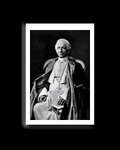
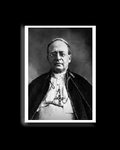

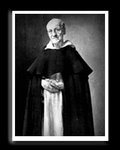
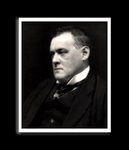
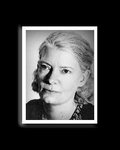
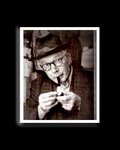
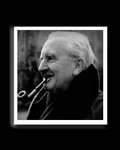





2 comments:
Good points all, but I'd note that it's not really contrary to my point (of course, you didn't say that it was, either), which criticized economics as a predictive science of the same sort as physics or chemistry, not as a predictive science when taken within its proper limits.
It is true that mainstream 'neoclassical' schools of economic thought are heavily positivist and rely on a false use of statistics, mathematics and science.
But this is not true of all economic analysis. The economists of the Austrian School do not make the error of the positivists. Instead, Austrians base their theory on deductions drawn from universal axioms based on the realities of human choice and action.
Post a Comment